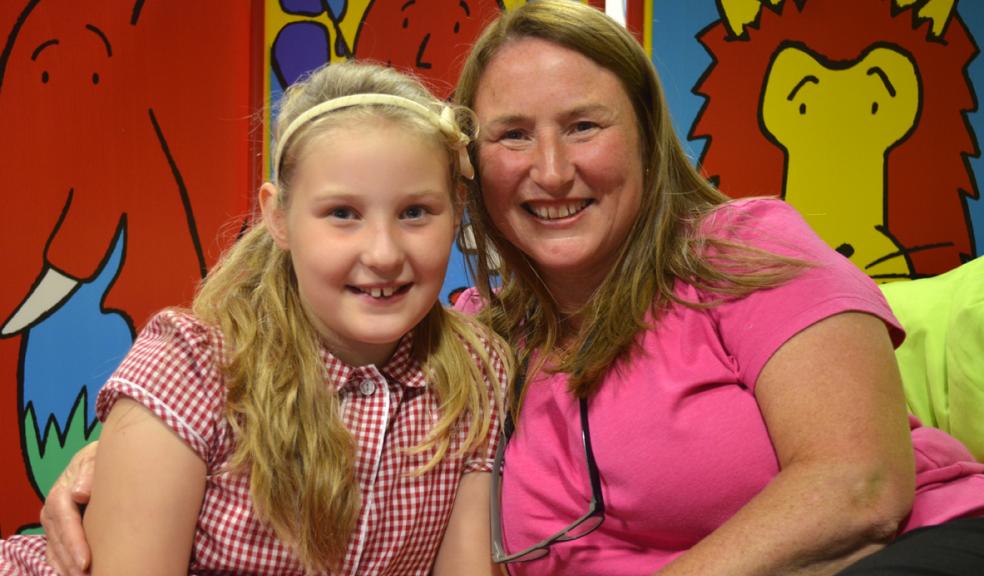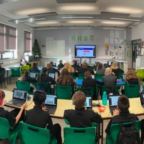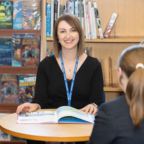
Schoolchildren train as coaches to offer helping hand to younger pupils
A primary school headteacher says an innovative form of coaching is transforming the self-confidence of pupils who are shy or under-achieving.
The coaching programme at Woodlands Park Primary School in Ivybridge, Devon is the brainchild of the senior teaching assistant and Liz Scott Coaching and Training. Final year pupils are trained as coaches so that they can work with younger children at the school.
It has been such a success that a recent independent report described it as “having an impressive and profound academic and emotional impact in both Year 6 coaches and Year 3 and 4 coachees”. The report by Challenge Partners added: “This is an area of excellent practice that should be shared with other schools.”
A primary school headteacher says an innovative form of coaching is transforming the self-confidence of pupils who are shy or under-achieving.
The coaching programme at Woodlands Park Primary School in Ivybridge, Devon is the brainchild of the senior teaching assistant and Liz Scott Coaching and Training. Final year pupils are trained as coaches so that they can work with younger children at the school.
It has been such a success that a recent independent report described it as “having an impressive and profound academic and emotional impact in both Year 6 coaches and Year 3 and 4 coachees”. The report by Challenge Partners added: “This is an area of excellent practice that should be shared with other schools.”
The idea to extend coaching training to pupils followed a series of training sessions for the school’s teaching assistants by Ivybridge-based Liz Scott Coaching and Training. Seven children were selected to be trained as coaches following a taster session and an application and interview process. They then received professional training from Liz and the school’s senior teaching assistant Liz Aspin, who heads up the children’s coaching programme.
Throughout the 2013-14 academic year, the seven have spent 45 minutes each Tuesday afternoon with seven-year-olds from Year 3. They are now coaching current Year 5 pupils to carry on the work in the next school year.
Liz Aspin, who underwent training from Liz Scott, explained: “We wanted the Year 6 children to have the experience of being a coach, of learning leadership skills and of working with younger children who perhaps need a little bit of extra support. Sometimes they respond better to other children, rather than to adults. In the selection process, we were looking for children who were good listeners and good communicators.
“The older children have worked on a 1-2-1 basis with younger children and although Liz and I are on hand if they want to come to us for guidance, they have been responsible for their coaching programme.
“I have seen a huge difference in the Year 6 children; in their confidence, in the way they interact with the younger children, how they communicate with their class teacher and adults and how they have really become leaders. I can see future head teachers in some of them.”
Each of the younger children is coached for up to a school term and in the first year, over 20 pupils have been coached in this way. The biggest benefit has been in drawing out some of the school’s shyest pupils who lacked self-confidence or self-esteem.
“The younger children have loved it,” said Liz Aspin. “One boy also won a certificate for concentration and he said it was because of the coaching.”
Class teachers selected the Year 3 children who they felt needed some confidence-building. Among these were Jack Ryder, Ben Privett and Molly Lynch, who said the coaching had brought her out of her shyness: “It’s given me more self-confidence and I get to meet new friends. It’s also given me someone to talk to and share my ideas with. I am less shy now.”
For Ben, it has helped him with his learning: “It’s really good because I’m more confident now and it’s nice to be helped by the older children. I want to keep on doing it and then I want to be a coach when I’m in Year 6.”
Jack said he can now concentrate more in class: “I’m very energetic but because of the coaching I’m better at listening now so it has helped me with my learning. And it’s great fun.”
Eight new coaches – four girls and four boys from Year 5 – are currently receiving coaching training from the final year students, who move up to secondary school in the autumn. This time, the selection process has been carried out by the Year 6 pupils, who are best placed to know what skills are needed for the role.
Three of the coaches, Bria Smith, Matt Squires and Immogen Pope, said the coaching had helped both them and the younger children. Immogen said: “It’s helped me because rather than just say ‘it works this way’ you learn to find out why and you develop answers. The coaching involves lots of different skills. And it makes me feel happy to know that I’ve helped someone.” Matt has noticed a difference in all the Year 3 children who have been coached: “It’s fun to see them getting more self-confidence and I think all of them have improved lots this year.”
The changes have not just been at school. Bria’s mother Alison said she was now much more organised at home: “Her confidence has grown no end and she has developed organisational skills and life skills so she can sort things out herself without me having to nag her. She has learnt a lot about herself and she interacts more with her peers and older people as well as the younger ones. She now has a lot more skills and is better prepared for secondary school.”
Head at Woodlands Park Primary School, Heather Hanrott, said the first year had been a great success, culminating in an external review by three members of Challenge Partners which suggested the practice should be shared with other schools.
“Little if any research has been done in this field at primary schools so it was something of an experiment and we didn’t really know what to expect,” said Heather.
“I think we’ve always under-estimated the abilities of children of this age in terms of their depth and understanding of other’s social and emotional development. The coaching has built up a trust between the children and if you give children a voice, it develops their self-esteem which means they are better able to learn, which is the end point.”
Liz Scott said: “It’s been very rewarding to see how the programme has developed over the past year. We’ve heard from teachers, parents, Year 6 and Year 3 pupils how beneficial it has been for the children, who have also thoroughly enjoyed it. These are life skills that will be with them throughout their education and beyond.”
















